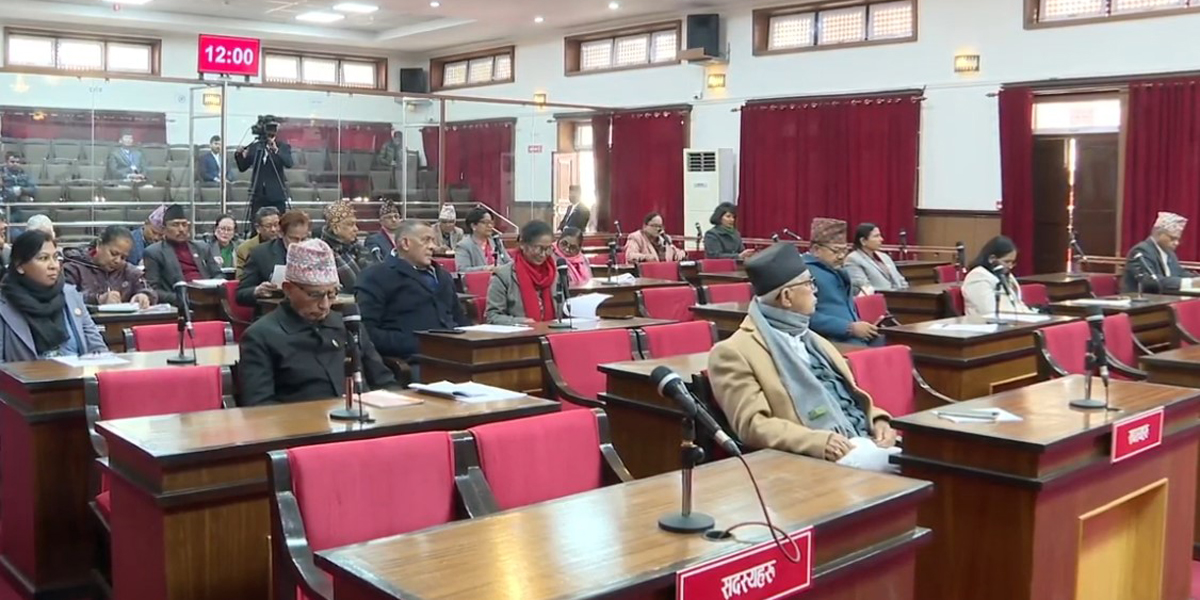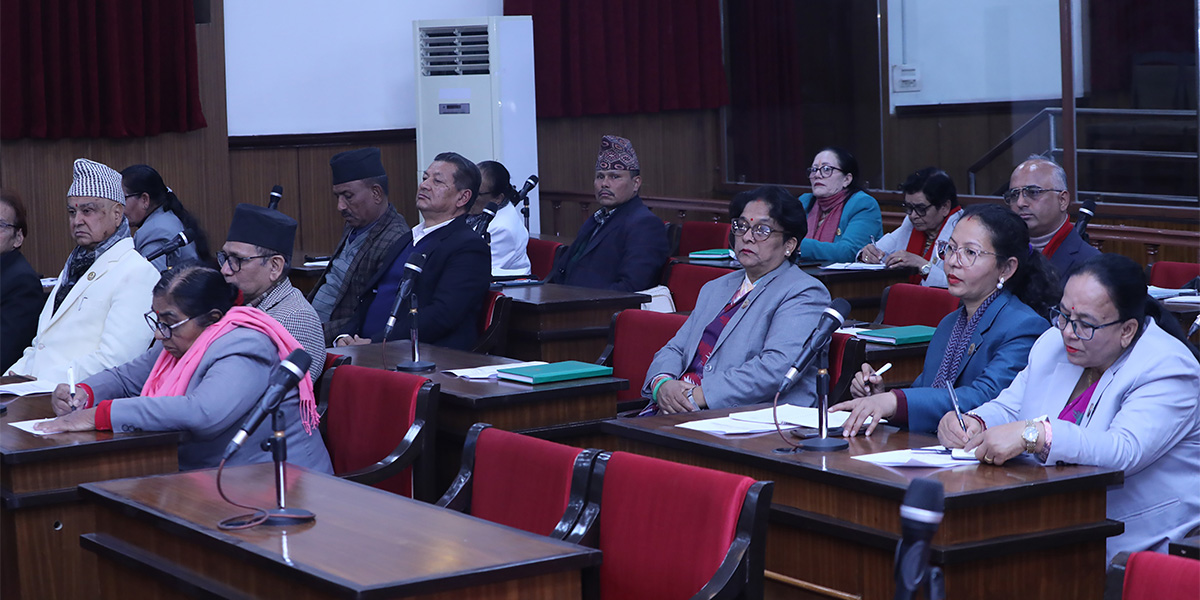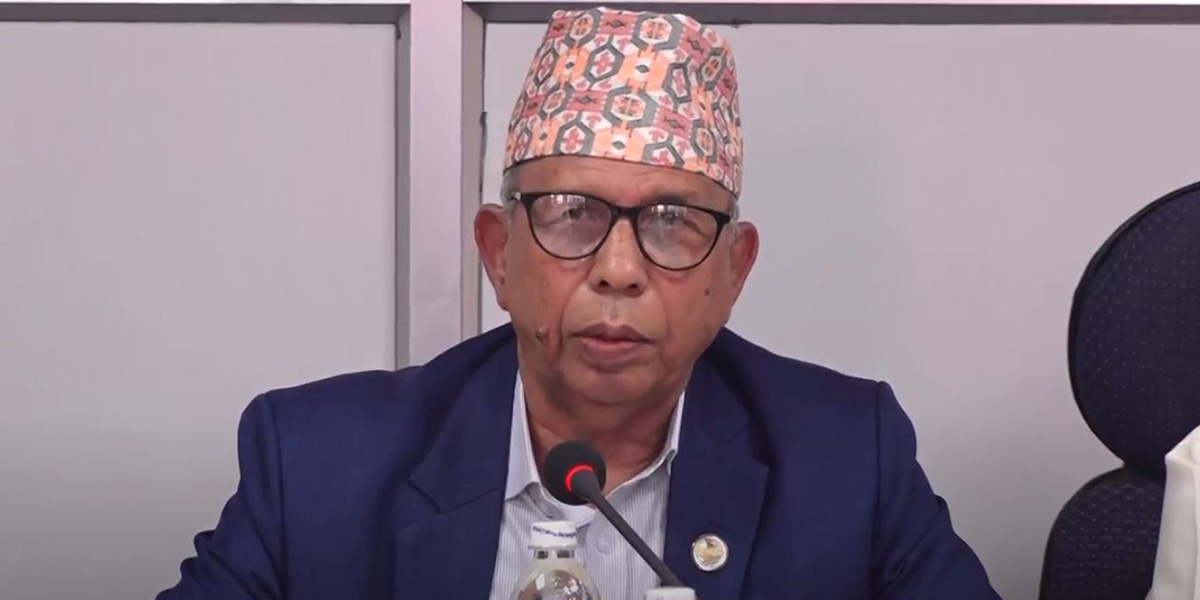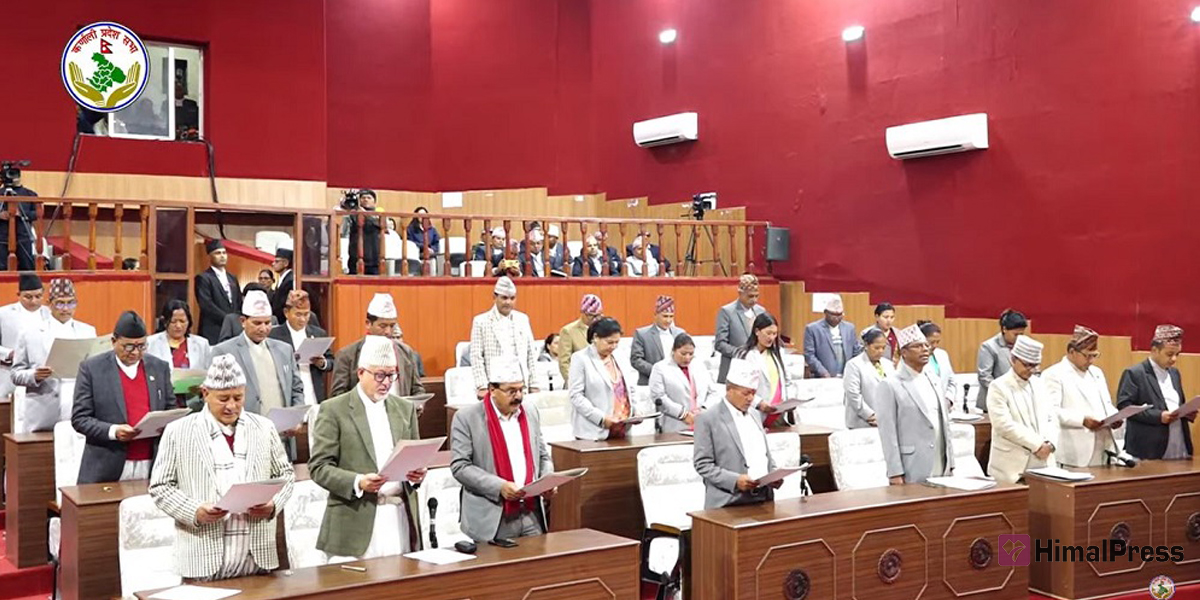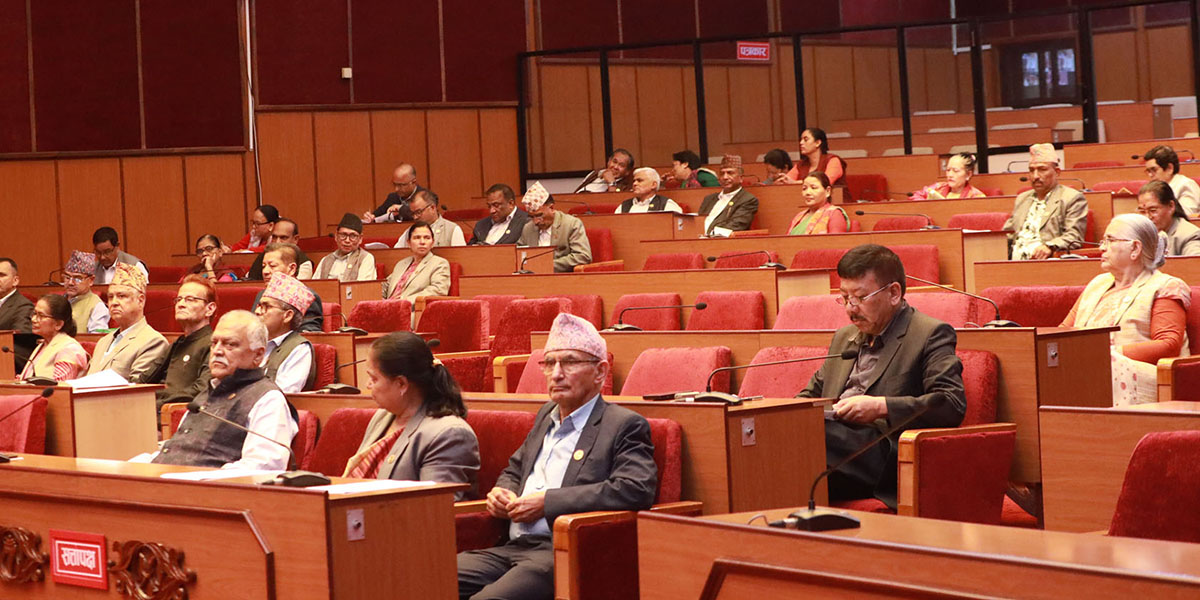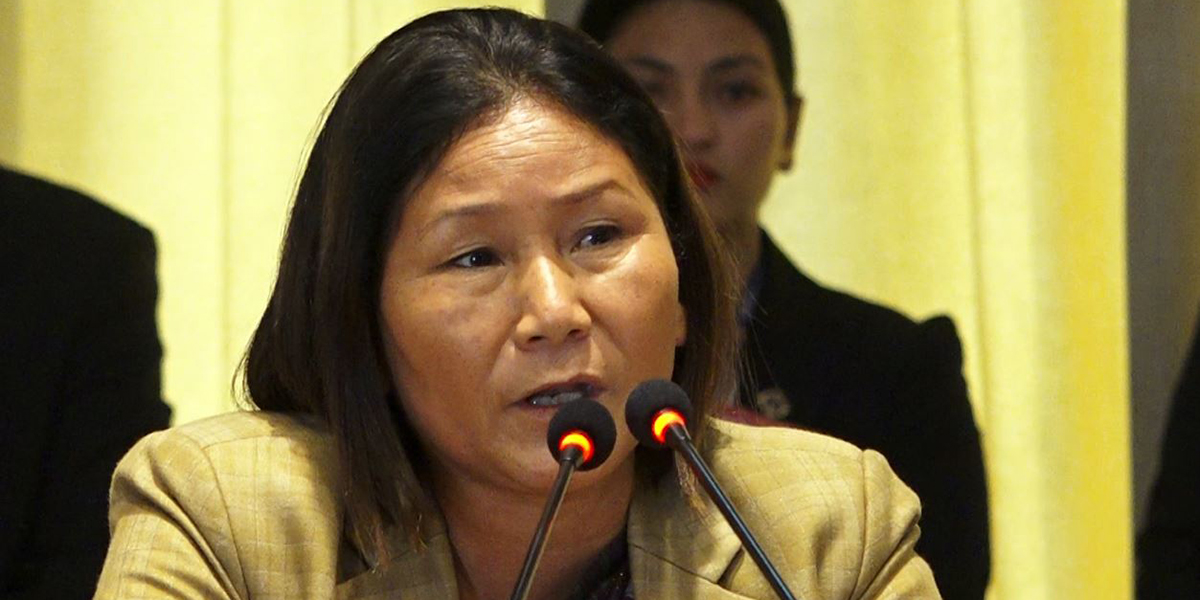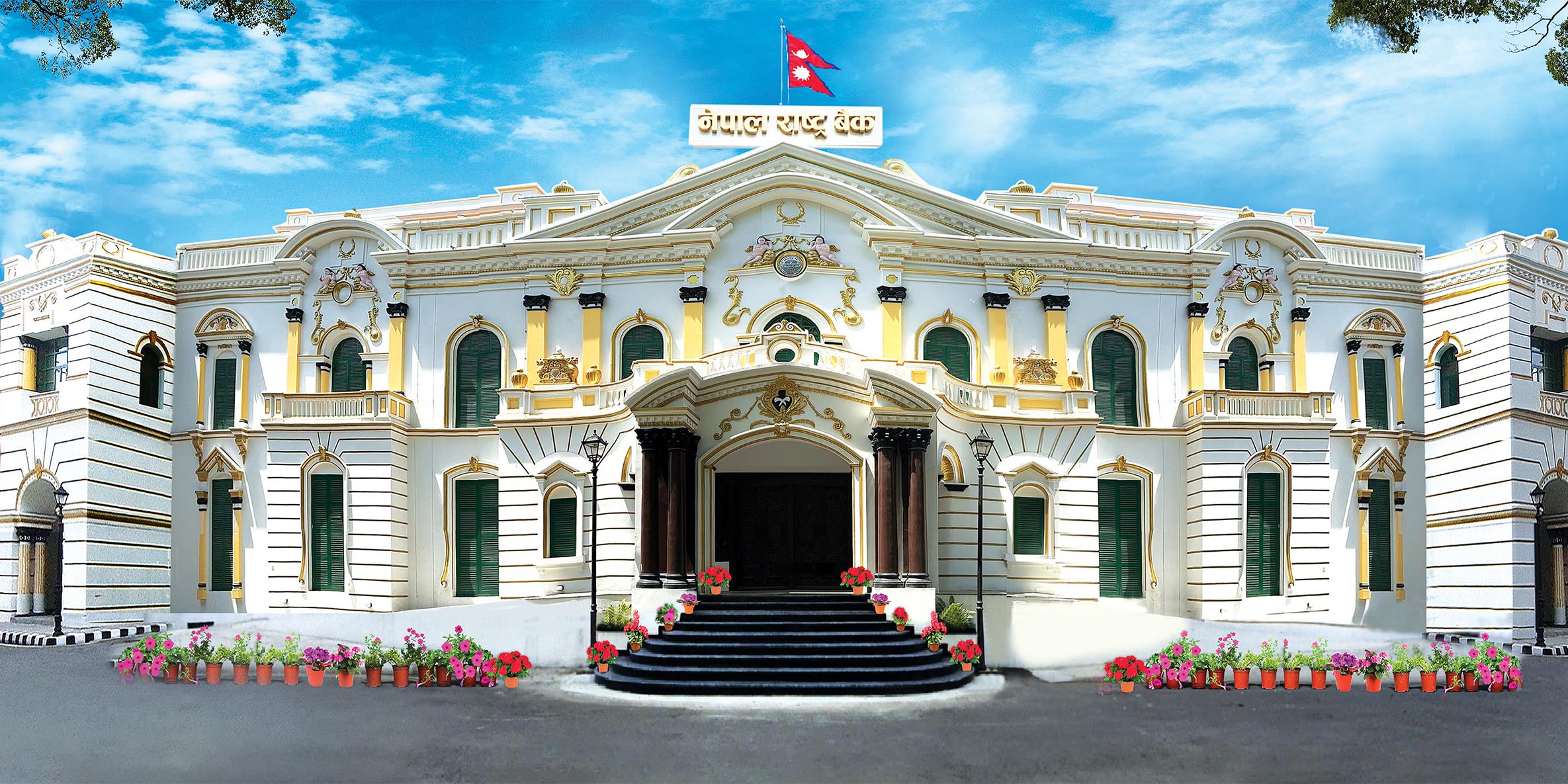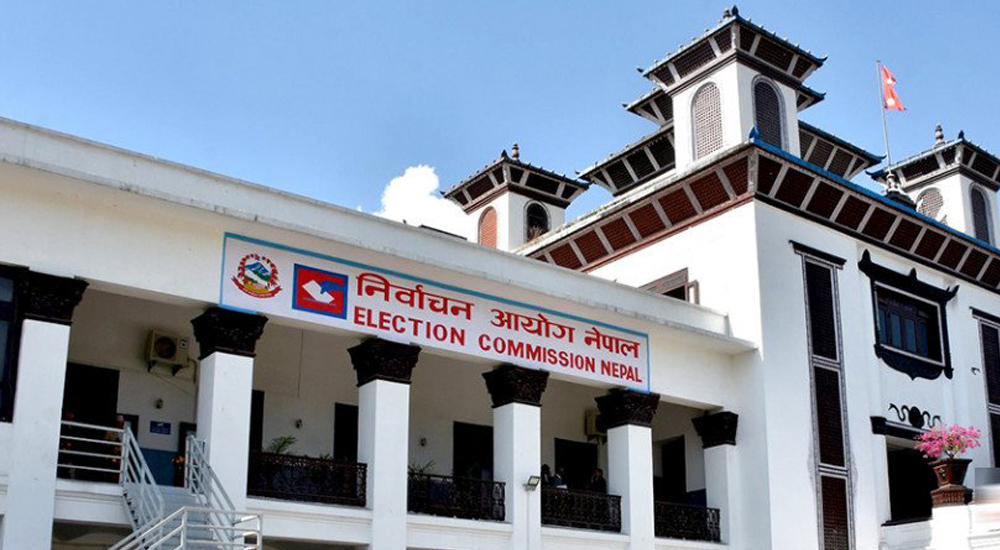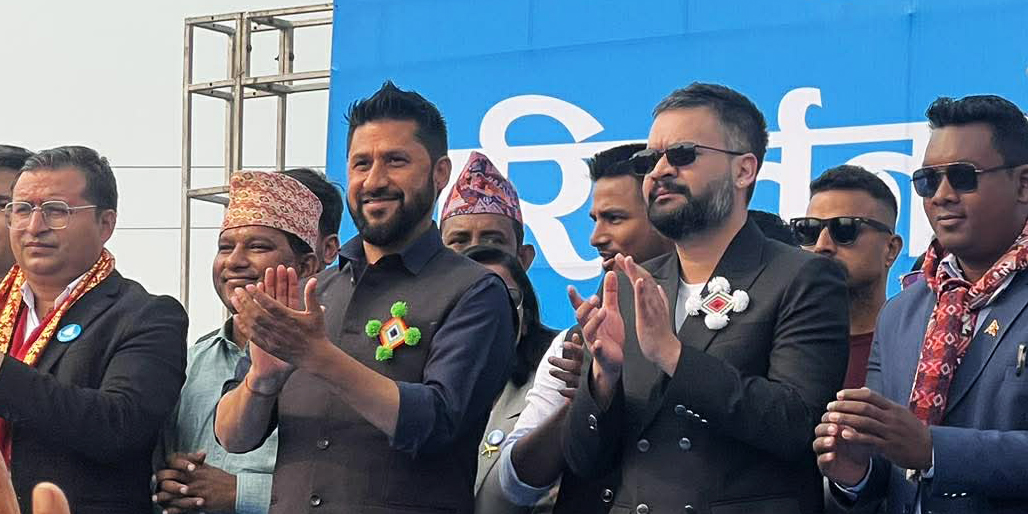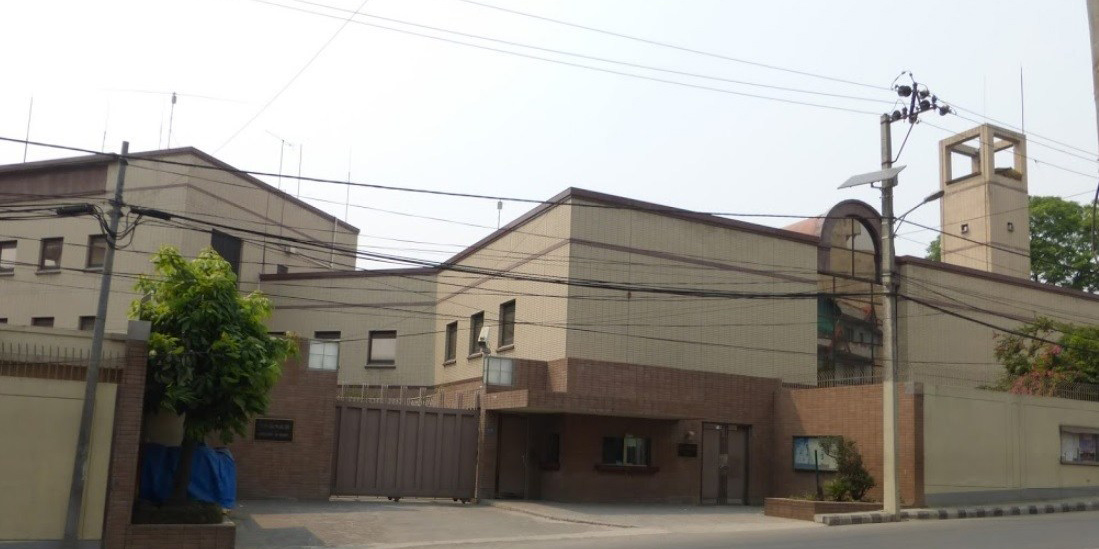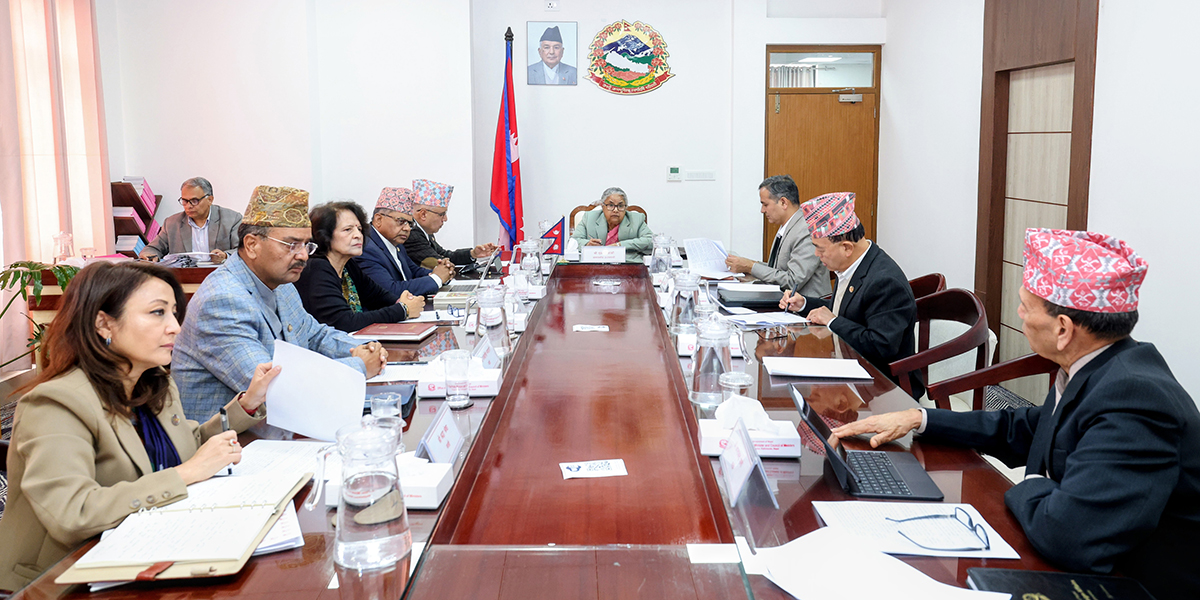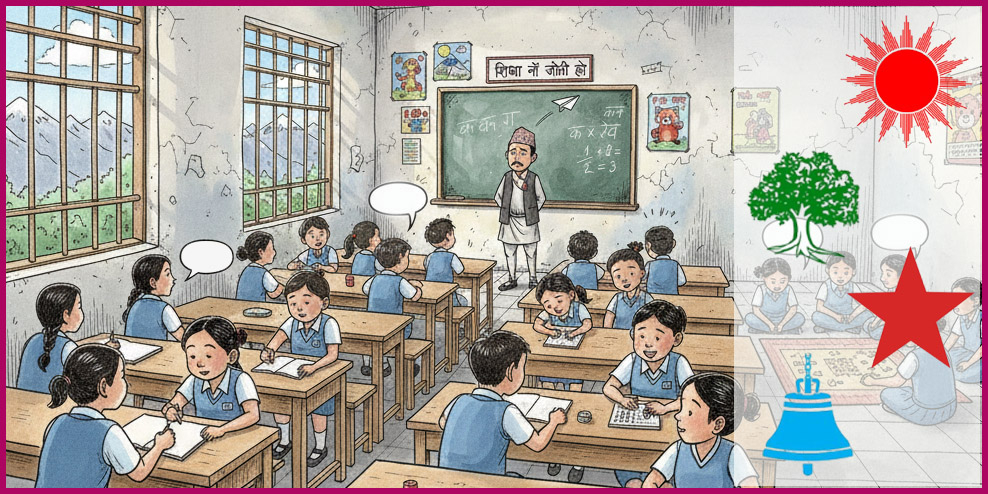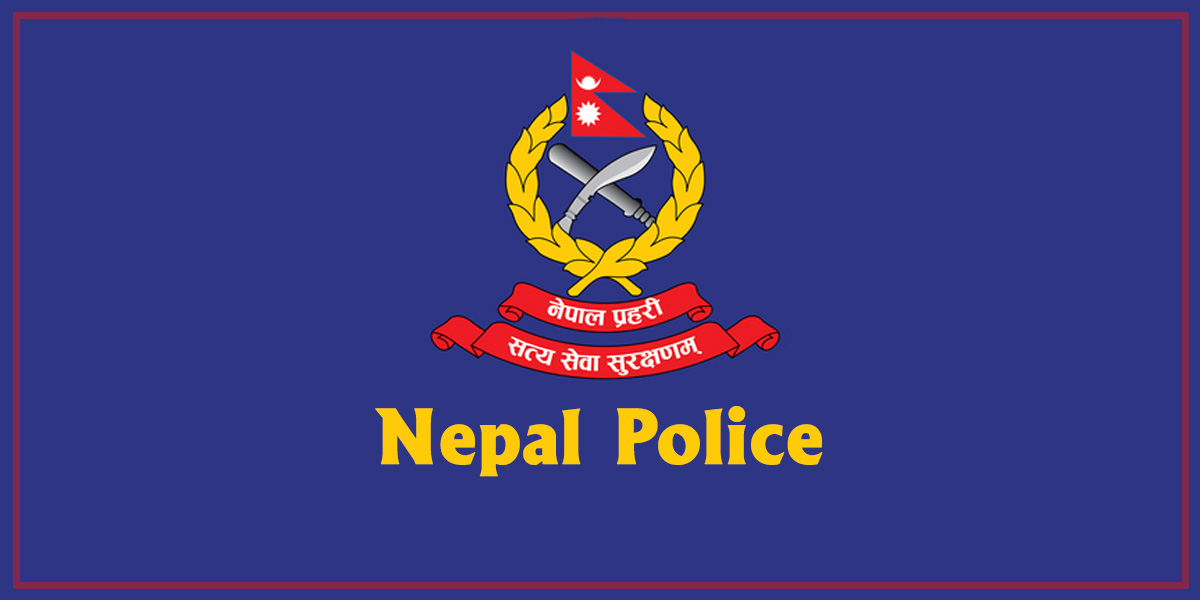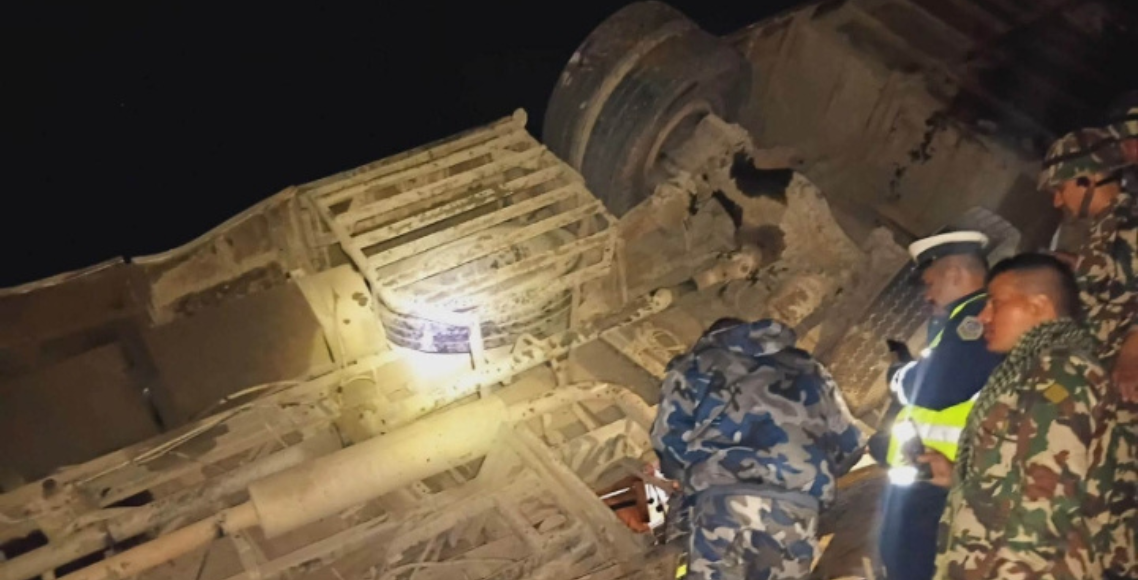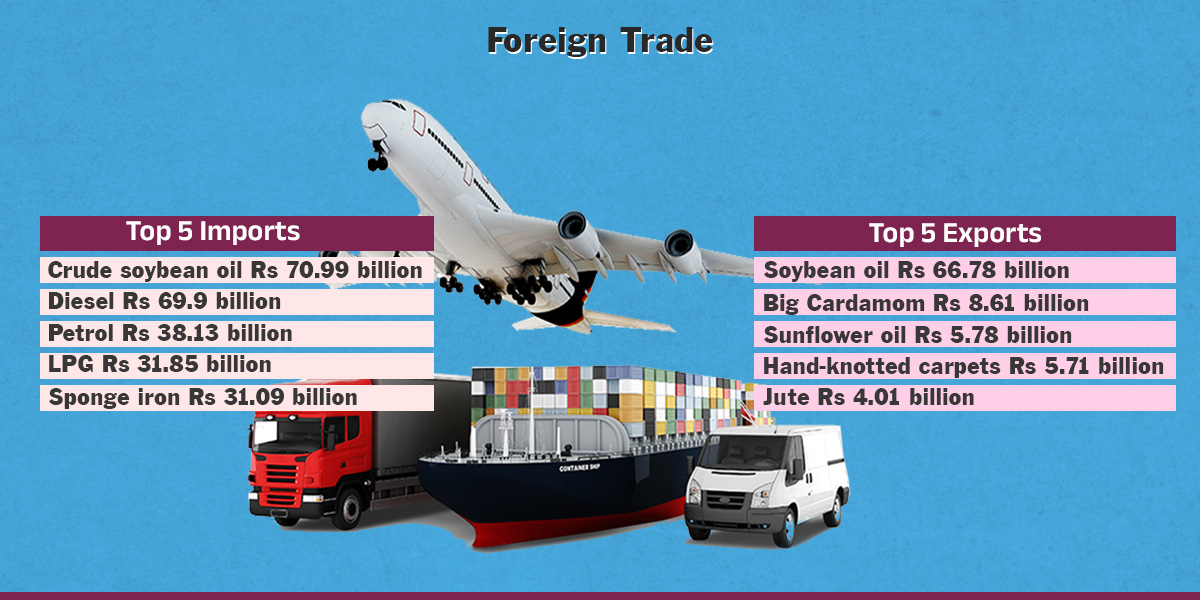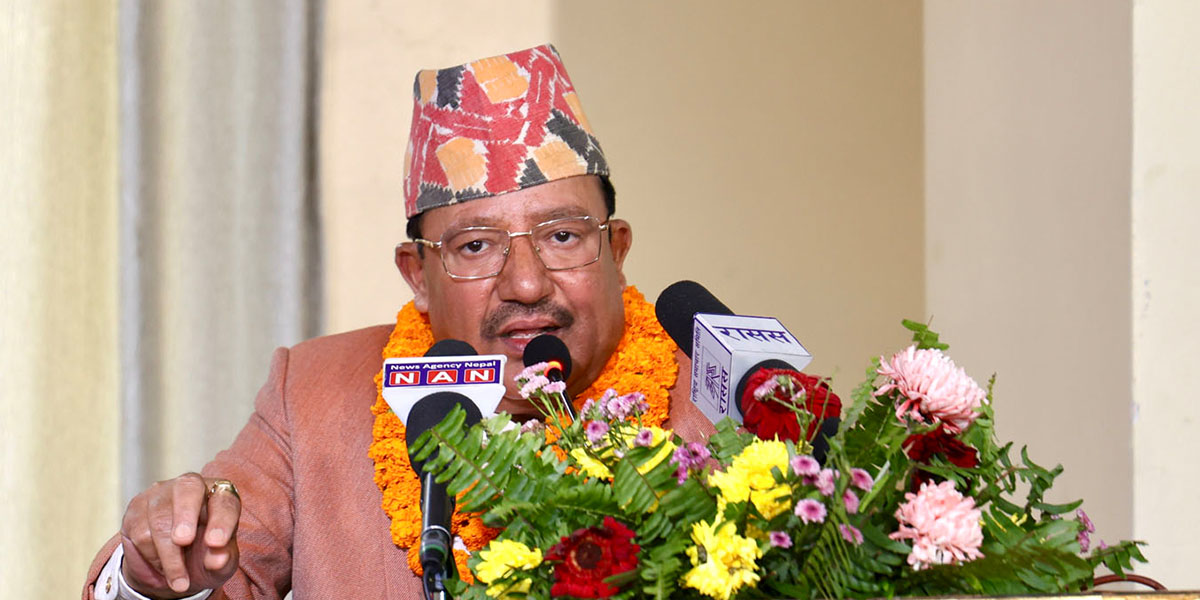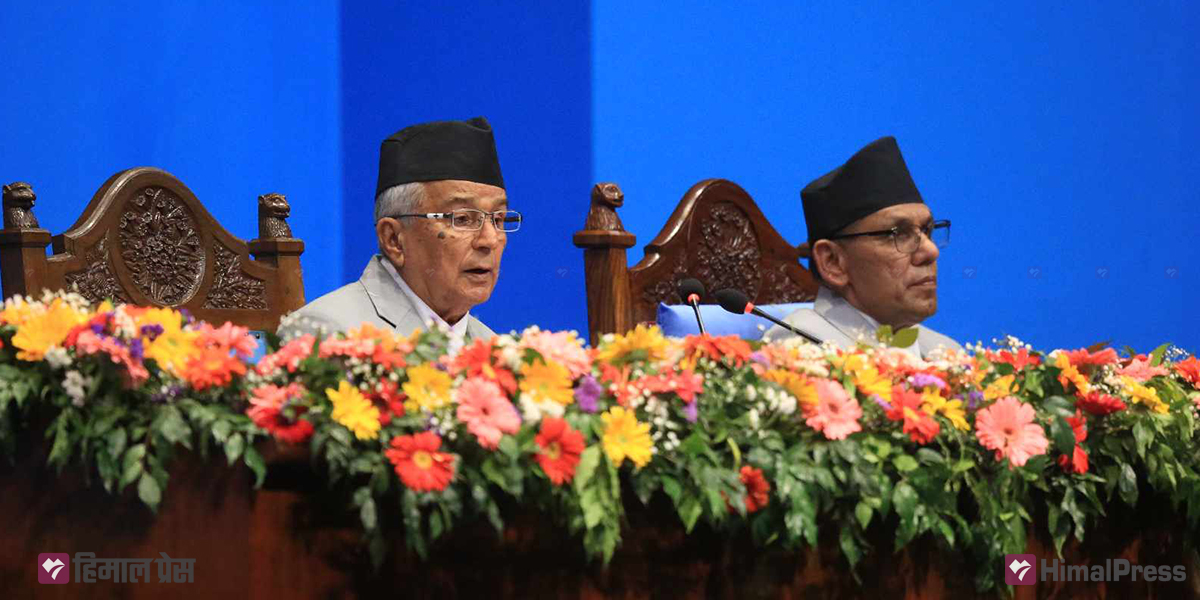
KATHMANDU: President Ram Chandra Poudel presented the government’s policies and programs in the joint meeting of the House of Representatives and the National Assembly on Tuesday.
Given below are the major highlights of the policies and programs:
- The suggestions received from various studies conducted at different times will be implemented to resolve the problems seen in banks, financial institutions, microfinance, cooperatives, insurance, and capital markets. Loans of microfinance borrowers will be rescheduled and restructured.
- A specialized regulatory body will be set up for intensive supervision and regulation of cooperative institutions. Security of deposits and investments in cooperatives will be ensured through a cooperative savings and loan protection fund, a cooperative loan information center, and a cooperative loan recovery tribunal.
- Public enterprises like Gorakhkali Rubber Industry, Butwal Spinning Mill, Hetauda Textile Factory, and others that are closed or in a sick condition will be operated through public-private partnerships or other suitable methods based on their feasibility.
- The process of getting a sovereign rating will be completed in the upcoming fiscal year.
- The identification of poor households will be completed within the upcoming fiscal year. The identified poor will be provided with free insurance through local governments. Households below the poverty line will be provided with electric stoves, tube wells and other materials.
- The Public Procurement Act will be reviewed, and the procurement system will be made competitive, transparent, and development-friendly.
- The ‘Partnership for Production and Employment’ program will be implemented in partnership with all three tiers of government, the private sector, cooperatives, and communities.
- The decade from 2024/25 will be declared the ‘Decade of Investment in Agriculture’, and investments from the government, private sector, cooperatives, and development partners to agriculture sector will be increased.
- The minimum support price for agricultural and livestock products will be set before the start of the production cycle.
- Wholesale agricultural and fruit markets with ripening chambers will be operated in metropolitan and sub-metropolitan cities.
- Model farms will be established at the ward level in partnership with young farmers and entrepreneurs to serve as learning centers.
- The country will be made self-reliant in fruits within five years by extensively expanding fruit nurseries and seedling plantations. Self-sufficiency in livestock and fishery products will be achieved within two years.
- At least one resource center with infrastructure for keeping 1,000 cows and buffaloes will be developed in each province in cooperation with all three tiers of government and the private sector.
- The ‘Himalayan Prosperity Program’ will be implemented to operate large farms for sheep, goats and yaks, as well as apple orchards and herbs plantation in the Himalayan region.
- Irrigation facilities will be expanded to an additional 15,500 hectares of arable land. Cluster-based shallow and deep tube well irrigation services will be extended to 318,000 hectares in the Tarai-Madhesh region.
- The “Integrated Karnali Irrigation Special Program” will be implemented in Karnali Province.
- The problems of over 500,000 landless, squatters, and unorganized settlements will be resolved.
- At least 10 reservoirs will be constructed in the Chure region and inner Madhesh areas using local materials to control landslide and drought, and for flood management, and groundwater recharge.
- The ‘Prosperous Karnali Entrepreneurship Program’ will be implemented in cooperation with local governments and the private sector to utilize the natural resources of Karnali Province for the prosperity of the local population, based on agricultural and forest products.
- National policies and action plans on climate change impact mitigation, adaptation, and disaster risk reduction will be implemented. An international dialogue on “Climate Change, the Himalayas, and the Future of Humanity” will be organized. The “President’s Climate Change Management Program” will be implemented to address the impacts of climate change in an integrated and balanced manner.
- Ongoing petroleum exploration project in Dailekh will be completed in the upcoming fiscal year.
- The National Startup Enterprise Policy will be implemented in cooperation with all three tiers of government and the private sector. At least 1,000 youths will be provided with concessional loans to operate startups.
- At least 1,000 micro, cottage, and small entrepreneurs will be provided with interest subsidies.
- An agro-industrial park will be established in Gorkha, a mega food park in Sudurpashchim Province, and a food and fruit processing center in Karnali Province. A special program will be implemented to ensure quality, regulated production, branding and export of indigenous liquor varieties.
- Consumer Court will be established to guarantee the constitutional rights of consumers.
- A national tourist destination profile will be prepared, and tourist destinations will be identified, developed, and promoted.
- Special incentive packages will be arranged for the operation of international airports in Pokhara and Bhairahawa.
- Efforts will be made to include important heritage sites like Janaki Temple in the UNESCO World Heritage List. The Buddha Circuit, Shiva Circuit, Ramayana Circuit, and Kirat Cultural Circuit will be identified and promoted for tourism.
- The Kathmandu-Tarai/Madhesh Fast Track Road will be completed by 2025. The Nagdhunga Tunnel and Gwarko Overpass will be brought into operation within the upcoming fiscal year.
- A feasibility study for the Kerung-Kathmandu Railway will be conducted. The investment modality for the Raxaul-Kathmandu Railway will be finalized the implementation process will be advanced.
- Waterways with terminals will be constructed on the Sunkoshi and Narayani rivers. Legal provisions will be made for the registration of vessels in Nepal.
- Integrated urban infrastructure will be constructed in Lumbini, Pokhara and Janakpur under the concept of cluster cities.
- The total installed capacity of the national power system will be increased to 4,500 MW within the next fiscal year, and per capita electricity consumption will be raised to 450 kWh.
- The construction of the Budhigandaki and Nalsing Gad reservoir projects will be advanced. Pre-construction activities for the Dudhkoshi Reservoir Hydropower Project will be completed. Financial arrangements will be made for implementation of Upper Arun, Phukot Karnali, Tamakoshi-5, Jagadulla, and Chainpur Seti hydropower projects.
- The construction of the Hetauda-Dhalkebar-Inaruwa transmission line will be completed. The construction of the Budhigandaki Corridor transmission line will commence. The construction of the New Butwal-Gorakhpur transmission line section will be advanced.
- Concessions will be provided for electricity consumed by irrigation, agriculture and agro-based industries.
- The “Prime Minister’s Daughter Self-Reliance Program” will be implemented to empower and strengthen women. Women’s Help Desks will be set up at all police stations.
- All children residing in child reform homes will be provided with free health insurance.
- Arrangements will be made for local governments to provide regular health check-ups and medicines at home for senior citizens.
- Need-based scholarships will be extended up to grade 12. Basic training in government working procedures will be provided to students pursuing higher education.
- Arrangements will be made to send university students for teaching internships with evaluation to address the shortage of teachers in English, Mathematics, and Science subjects in secondary schools.
- A 300-bed medical college and academic programs will be started this year at Shaheed Dashrath Chand Health Science University. Necessary preparations will be made for the establishment and operation of medical colleges in other parts of the country, including Udayapur, Morang, Parsa and Chitwan.
- Outpatient services will be operated in two shifts at hospitals with sufficient human resources, including Bir Hospital, National Trauma Center and Kanti Children’s Hospital. Telemedicine services will be introduced in at least one federal hospital and at two hospitals in each province.
- All organized sectors, including government and non-government, will be required to enroll in health insurance program.
- The ‘Returnee Entrepreneurship Program’ will be implemented in collaboration with provincial and local governments, as well as the Foreign Employment Promotion Board, to promote entrepreneurship and employment generation based on the skills and professional competencies of returnee migrant workers.
- Mandatory labor audits will be implemented in government and private institutions. A national strategy will be formulated to formalize workers in the informal sector.
- The upcoming decade will be promoted as the Information Technology Decade to achieve socio-economic transformation and prosperity by adopting information technology as the basis for digital transformation.
- At least 5,000 jobs will be created by operating information technology workstations in Kathmandu Valley and suitable locations in each province.
- Arrangements will be made for advanced, high-quality, and competitive printing of security printing items such as excise duty stickers, postage stamps, driving licenses, and passports within the country.
- Provisions will be made to provide fellowships to 1,000 talented youths in various subject areas.
- The 10th National Games will be organized in the upcoming fiscal year.
- The construction of cricket stadiums in Mulpani of Kathmandu, Biratnagar of Morang, and Phapla of Kailali will be expedited. The construction of the Gautam Buddha Cricket Stadium under construction in Bharatpur, Chitwan will be advanced in partnership with the federal government, province, and local levels. The construction work of the Kirtipur Cricket Stadium, along with upgradation, will be prioritized and advanced.
- The retirement period for police personnel of all levels will be reviewed.
- Open prisons will be established in coordination with the province governments.
- The national identity card system will be linked to all types of citizen services provided by the state. All government electronic systems related to citizen services will be integrated into the Nagarik App, allowing most services to be accessed via smartphone.
- Policy and legal arrangements will be made to promote the medicinal use, controlled production and commercialization of cannabis.
- A policy will be adopted to gradually achieve self-sufficiency in the production of security and defense materials, essential ammunition, explosives, uniforms, and other military supplies required for the nation.
- The provision of free legal aid will be made effective in coordination with provinces and local levels.
- Remaining tasks related to the peace process and transitional justice will be completed at the earliest. A high-level committee will be formed to update the list of injured and disabled persons from various political movements, including the People’s Movement, People’s War, Madhes Movement, and others, and to find a sustainable solution to their problems.
- A Peace Fund will be established to provide sustenance allowances to the injured and disabled from armed conflicts and people’s movements, as well as compensation, treatment, necessary equipment, education, employment, self-employment opportunities, and financial assistance to conflict-affected families for their rehabilitation.
- The reinforcement, reconstruction, and rehabilitation of private residences and public structures damaged by earthquakes centered in Jajarkot, Bajhang, and Doti will be completed promptly.
- The Federal Civil Service Act will be implemented at the earliest.
- The ‘Skilled Entrepreneurship Special Program’ will be implemented in all seven provinces to modernize and commercialize the traditional skills, knowledge, and occupations of the Dalit community. Special programs will be implemented for the upliftment of Muslims, backward classes, and indigenous communities.
- Necessary legal and administrative arrangements will be made to ensure the voting rights of Nepali citizens living abroad.
- The search and conservation of properties owned by the former royal family will be continued, and a business and strategic plan will be formulated and implemented for the proper utilization of the acquired properties.
- National consensus will be built on fundamental issues of nationality, national security, foreign relations, strategic infrastructure, and socio-economic transformation. Diplomatic efforts will be made to resolve border issues.
Published On: 14 May 2024
Comments

 Himal Press
Himal Press 